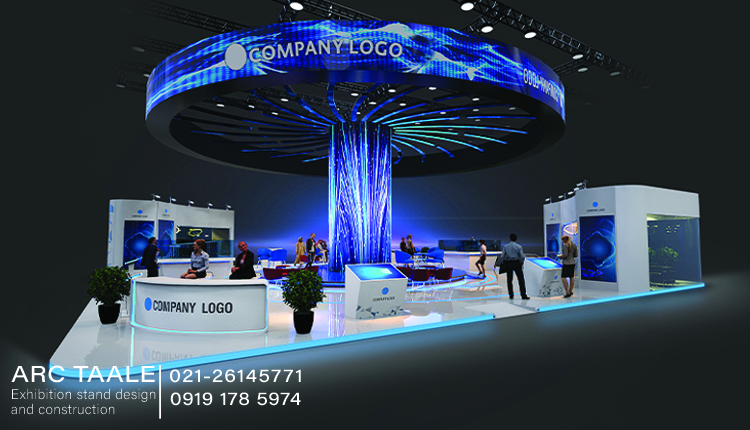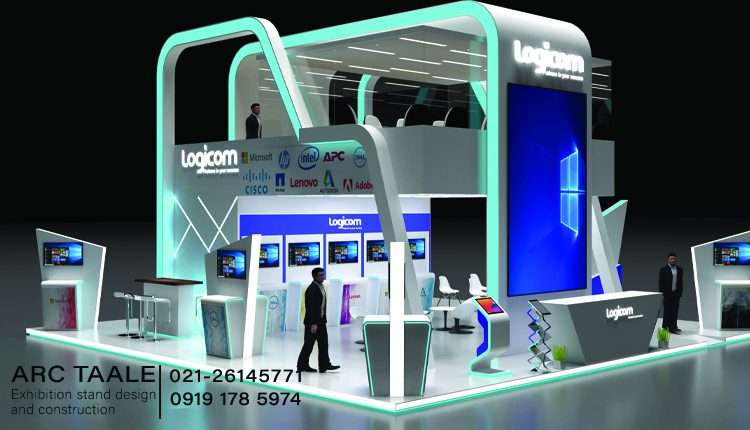Holding trade show provides a dynamic platform for businesses to showcase their products, services, and industry expertise to a targeted audience. Trade shows bring together industry professionals, potential buyers, and key stakeholders in a single location, fostering networking opportunities and business collaborations.
From large-scale international trade shows to specialized niche events, each trade show offers a unique environment for exhibitors to connect with their target market, generate leads, and build brand visibility. Successful trade shows require meticulous planning, including booth design, marketing strategies, and engaging presentations.
Best Ways of Holding Trade Show
Organizing a trade show that leaves a lasting impact requires meticulous planning, strategic execution, and a deep understanding of the target audience. Here are the best ways to ensure a trade show’s success:
Define Clear Objectives
Clearly outline the objectives of the trade show. Determine whether the goal is to generate leads, increase brand awareness, facilitate sales, or foster industry networking. Clear objectives provide direction for planning and execution.
Thorough Market Research
Conduct in-depth market research to understand current industry trends, competitor activities, and attendee preferences. Insights from research help in tailoring the trade show to meet the specific needs and interests of the target audience.
Strategic Venue Selection
Choose a venue that aligns with the target audience’s demographics and preferences. Consider factors such as accessibility, space layout, facilities, and ambiance. The venue should enhance the overall experience for exhibitors and attendees.
Engage Reputable Exhibitors
Attract high-quality exhibitors relevant to the industry. Reputable exhibitors not only enhance the event’s credibility but also attract a larger and more diverse audience. Curate the exhibitor list to ensure a mix of established brands and innovative startups.
Promotion and Marketing
Develop a comprehensive marketing strategy that includes digital marketing, social media campaigns, email newsletters, and collaborations with industry influencers. Utilize engaging content and visually appealing media to generate buzz and attract attendees.
Seamless Logistics and Operations
Ensure seamless logistics, including registration processes, booth setup, security, and technical support. Efficient operations contribute to a positive experience for exhibitors and attendees, allowing them to focus on meaningful interactions.
Visitor Engagement and Feedback
Implement visitor engagement strategies such as surveys, feedback kiosks, and mobile apps. Gather attendee feedback on their experience, exhibitor interactions, and event organization. Analyze this data to make data-driven improvements for future shows.
By meticulously following these best practices, trade show organizers can create an immersive and valuable experience for exhibitors and attendees alike.
Comprehensive Holding Trade Show Planning Checklist
Holding Trade Show demands meticulous attention to detail and careful planning to ensure that every aspect of the event runs seamlessly. A well-structured trade show checklist serves as the backbone of event planning, guiding organizers through various stages of preparation. Here’s an in-depth explanation of the key components that constitute an effective trade show planning checklist:
Define Objectives
Clearly outline the goals of the trade show, whether it’s lead generation, brand promotion, sales, or networking. Defining objectives provides a strategic direction for the entire event planning process.
Budgeting and Financial Planning
Establish a detailed budget covering venue costs, marketing, logistics, staffing, technology, and contingencies. A comprehensive financial plan ensures that resources are allocated wisely and helps in tracking expenditures.
Venue Selection and Contracting
Research, visit, and select an appropriate venue based on capacity, location, facilities, and budget. Negotiate contracts, ensuring clarity on event dates, setup and breakdown times, and any additional services provided by the venue.
Exhibitor Management
Develop a system for exhibitor applications, registrations, and booth assignments. Communicate guidelines and regulations to exhibitors, facilitating a smooth setup process. Provide exhibitors with necessary resources and support.
Marketing and Promotion
Create a comprehensive marketing plan encompassing digital marketing, social media, email campaigns, press releases, and partnerships. Develop engaging content, visuals, and promotional materials to generate buzz and attract attendees.
Attendee Registration
Set up an online registration system for attendees. Plan engaging activities, seminars, workshops, and networking events to keep attendees actively involved throughout the trade show.
Suggested article: Holding Exhibitions in Armenia Tips
Benefits of Holding Exhibitions
Trade shows, bustling hubs of industry activity and innovation, offer a myriad of benefits for businesses, exhibitors, attendees, and the overall industry landscape. These dynamic events serve as catalysts for growth, networking, and knowledge exchange. Here’s a comprehensive exploration of the key benefits associated with holding a trade show:
Lead Generation and Sales
Exhibitors can showcase products or services directly to a targeted audience, generating high-quality leads and potential sales. Trade shows offer a unique environment where attendees actively seek solutions, making it an ideal setting for businesses to convert leads into customers.
Market Research and Feedback
Exhibitors can conduct real-time market research by engaging with attendees, understanding their preferences, and gathering feedback. This valuable data aids in product development, marketing strategies, and overall business improvement.
Brand Exposure and Recognition
Trade shows elevate brand visibility, enabling businesses to showcase their offerings to a wide audience. An impressive booth, engaging presentations, and positive interactions contribute to brand recognition and recall among attendees.
Product Launch Platform
Trade shows offer an ideal stage for launching new products or services. The buzz and excitement surrounding these events create a receptive audience, allowing businesses to make impactful debuts and create a lasting impression on attendees.
Industry Insights and Education
Attendees benefit from expert seminars, workshops, and panel discussions held during trade shows. These educational sessions provide insights into industry trends, best practices, and emerging technologies, enhancing attendees’ knowledge and skills.
Competitive Advantage
Being present at a trade show signifies industry involvement and demonstrates a company’s commitment to its market. A strong presence can create a competitive advantage, positioning businesses as leaders and influencers in their respective sectors.
Finding the Ideal Manager for Holding Trade Show
Selecting the right manager is pivotal to the success of any trade show. A skilled and experienced trade show manager can navigate the complexities of event planning, ensuring seamless execution and a memorable experience for exhibitors and attendees alike. Here’s a detailed guide on finding the best manager for holding a trade show:
Define Your Needs Clearly
Begin by defining your trade show’s objectives, size, budget, and industry focus. Clearly outlining your requirements helps in finding a manager with the specific expertise and skills tailored to your event.
Look for Relevant Experience
Seek candidates with a proven track record in managing trade shows similar to yours. Experience in your industry or related sectors is invaluable, as it brings insights into industry dynamics and exhibitor/attendee expectations.
Evaluate Organizational and Leadership Skills
Assess the candidate’s organizational prowess and leadership skills. A competent manager should excel in multitasking, managing budgets, coordinating logistics, and leading a team effectively.
Industry Network and Connections
A manager with a robust industry network can attract quality exhibitors, sponsors, and attendees. Evaluate their connections and networking skills, as these relationships often translate into increased participation and better collaborations.
Creativity and Innovation
Trade shows that stand out often incorporate creative and innovative elements. Look for a manager who can bring fresh ideas to the table, transforming the trade show environment into an engaging and memorable experience.
Problem-Solving Skills
Trade shows can encounter unexpected challenges. A skilled manager should be a proactive problem solver, capable of making quick decisions and resolving issues efficiently to ensure the event runs smoothly.
By carefully evaluating these qualities and conducting thorough interviews, you can find the best manager for your trade show. A competent manager not only meets your requirements but also elevates your event to new heights, leaving a lasting impression on both exhibitors and attendees.


